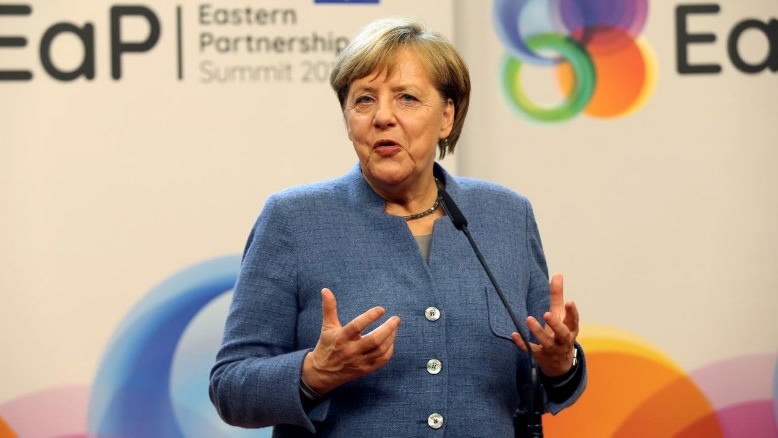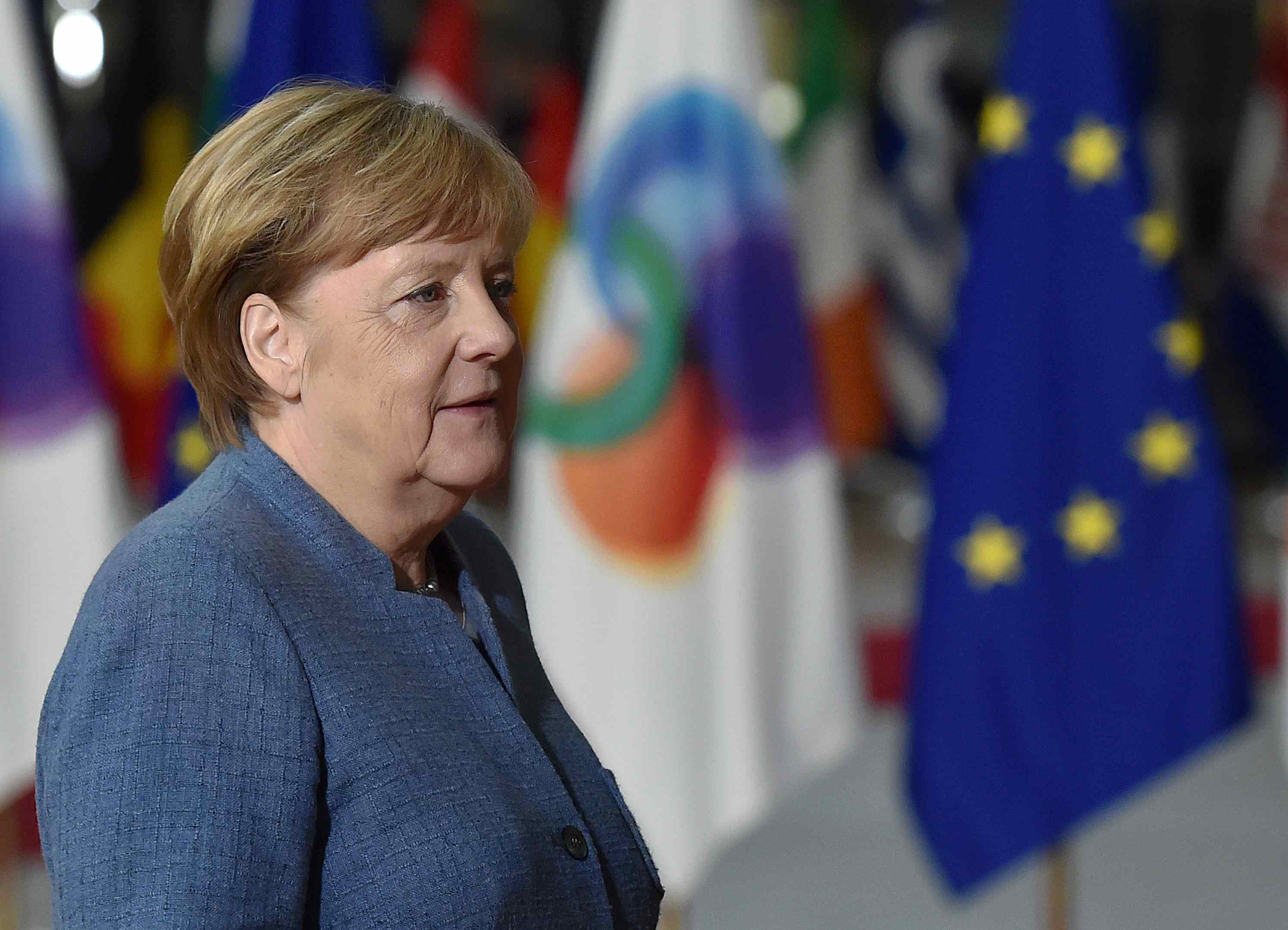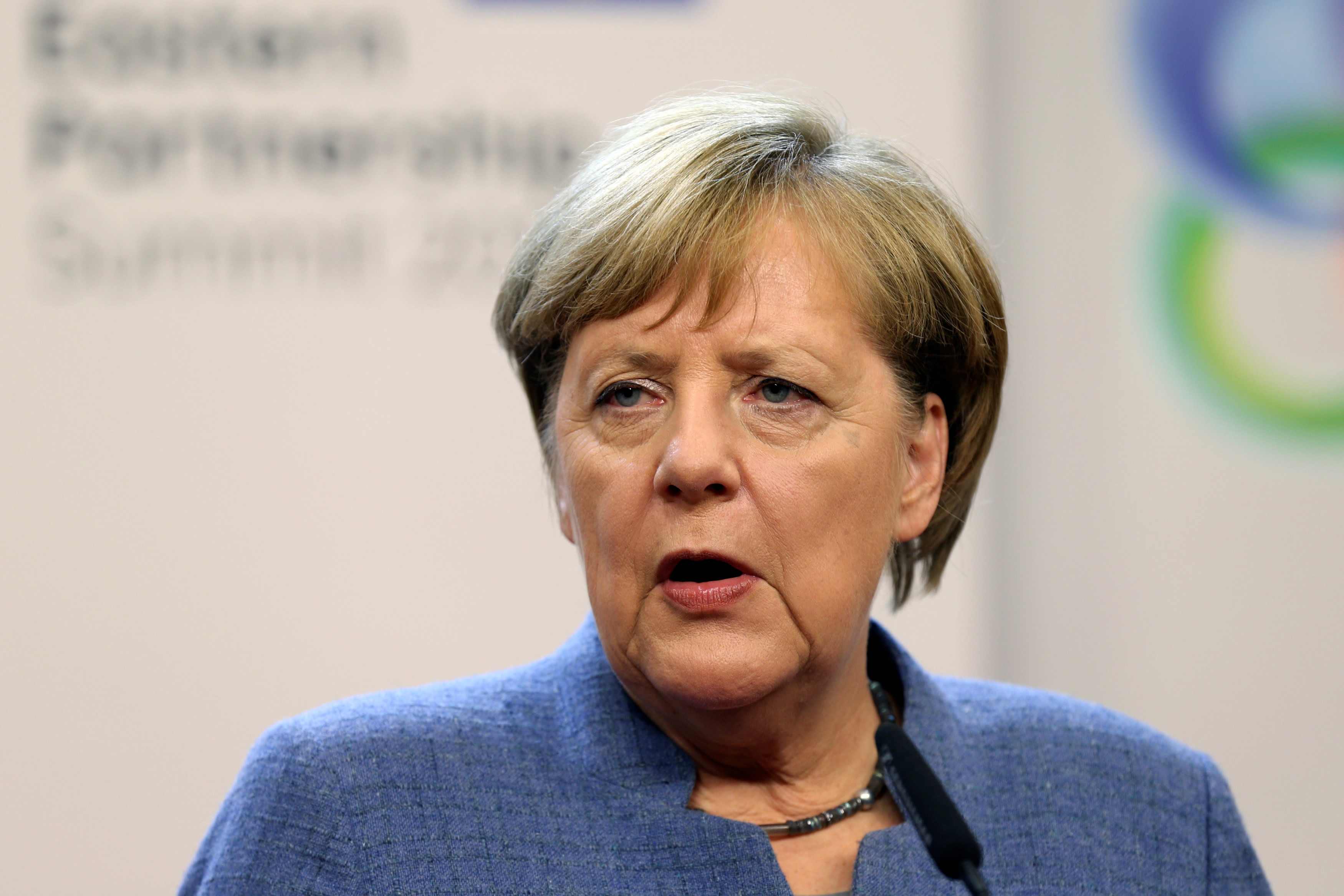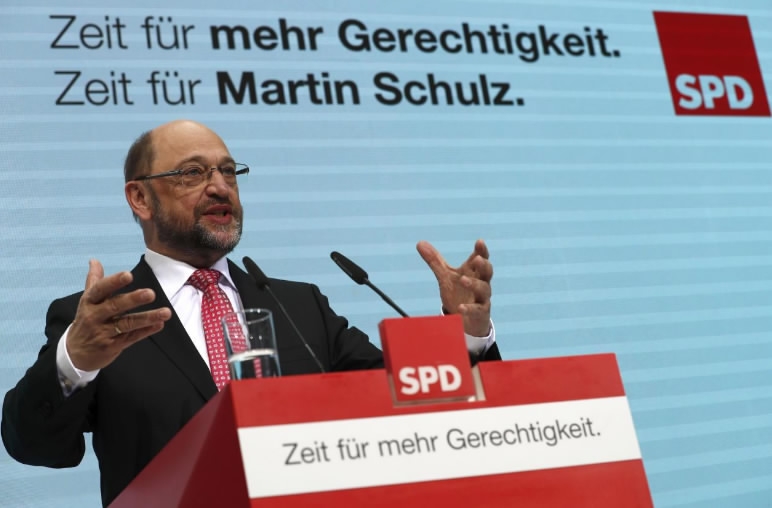
Politics
21:33, 25-Nov-2017
Germany's Merkel vows to get government in place quickly
CGTN

German Chancellor Angela Merkel said on Saturday she aimed to get a government in place as quickly as possible after she was left scrambling to find a way to govern when three-way coalition talks collapsed last Sunday.
"Europe needs a strong Germany, it is desirable to get a government in place quickly," Merkel told a party meeting, adding, however, that her acting government was able to carry on day-to-day business in Europe's biggest economy.

German Chancellor Angela Merkel arrives to attend the Eastern Partnership summit
at the European Council Headquarters in Brussels, Belgium, November 24, 2017. /Reuters Photo
German Chancellor Angela Merkel arrives to attend the Eastern Partnership summit at the European Council Headquarters in Brussels, Belgium, November 24, 2017. /Reuters Photo
"Asking voters to go to the polls again would, I think, be totally wrong," she said, stressing instead that voters had spoken and her party had a mandate. On Monday, Merkel had said she would prefer new elections to a minority government.
Sounding self-assured, even cracking the odd joke, and receiving regular applause during her speech, Merkel said she wanted to look ahead after the setbacks of the last week and she clearly turned her attention to the SPD.
'Worked well' with SPD
Merkel added she was prepared to talk to the Social Democrats (SPD) after the center-left party reversed an earlier decision and said it was prepared to talk to Merkel's conservatives, but she stressed any talks should be based on mutual respect.
She defended the record of the last 'grand coalition', saying under its leadership Germany enjoyed the strongest labor market for decades, a balanced budget and pensioners and families had benefited.

German Chancellor Angela Merkel holds a news conference after an Eastern Partnership summit at the European Council Headquarters in Brussels, Belgium, November 24, 2017. /Reuters Photo
German Chancellor Angela Merkel holds a news conference after an Eastern Partnership summit at the European Council Headquarters in Brussels, Belgium, November 24, 2017. /Reuters Photo
“We worked well together,” she said.
Merkel also laid out some priorities for a future government, including maintaining solid finances, making some tax cuts, extending the digital infrastructure and aiming to limit the number of migrants entering Germany to 200,000 per year.
Acknowledging an election result that reflected voters’ fears and insecurities – the conservatives and other parties bled support to the far-right Alternative for Germany (AfD) – Merkel acknowledged the task ahead was difficult.
“The election result shows that we have a mountain of tasks ahead,” she said.
SPD leader Martin Schulz, who had come under intense pressure to agree to talks for the sake of political stability, after rejecting the idea since election night, said on Friday that there was nothing 'automatic' about the outcome.

Social Democratic Party (SPD) leader Martin Schulz addresses a news conference at the party headquarters in Berlin, Germany, January 30, 2017. /Reuters Photo
Social Democratic Party (SPD) leader Martin Schulz addresses a news conference at the party headquarters in Berlin, Germany, January 30, 2017. /Reuters Photo
He has promised party members a vote on the talks. The SPD is split as many members fear that renewing a grand coalition would be political suicide. It scored its worst result since 1933 in the September election.
Some senior SPD members have made clear that the party would not be held hostage by Merkel. “Mrs Merkel is not in a position to be setting conditions,” Malu Dreyer, premier of the state of Rhineland Palatinate, told the Trierscher Volksfreund.
7098km
Source(s): Reuters

SITEMAP
Copyright © 2018 CGTN. Beijing ICP prepared NO.16065310-3
Copyright © 2018 CGTN. Beijing ICP prepared NO.16065310-3